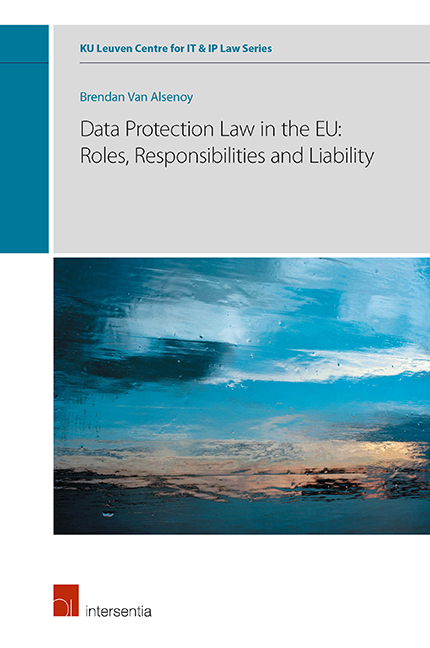Book contents
- Frontmatter
- Foreword
- Note to the Readers
- Acknowledgments
- Abstract
- Contents
- PART I INTRODUCTION
- PART II STATE OF THE ART
- PART III HISTORICAL-COMPARATIVE ANALYSIS
- Chapter 1 Introduction
- Chapter 2 The Emergence of Data Protection Law
- Chapter 3 National Data Protection Laws before 1980
- Chapter 4 International Instruments
- Chapter 5 National Data Protection Laws after 1981
- Chapter 6 irective 95/46/EC
- Chapter 7 General Data Protection Regulation
- Chapter 8 Conclusion
- PART IV USE CASES
- PART V RECOMMENDATIONS
- Bibliography
- Miscellaneous Endmatter
Chapter 4 - International Instruments
from PART III - HISTORICAL-COMPARATIVE ANALYSIS
Published online by Cambridge University Press: 26 June 2019
- Frontmatter
- Foreword
- Note to the Readers
- Acknowledgments
- Abstract
- Contents
- PART I INTRODUCTION
- PART II STATE OF THE ART
- PART III HISTORICAL-COMPARATIVE ANALYSIS
- Chapter 1 Introduction
- Chapter 2 The Emergence of Data Protection Law
- Chapter 3 National Data Protection Laws before 1980
- Chapter 4 International Instruments
- Chapter 5 National Data Protection Laws after 1981
- Chapter 6 irective 95/46/EC
- Chapter 7 General Data Protection Regulation
- Chapter 8 Conclusion
- PART IV USE CASES
- PART V RECOMMENDATIONS
- Bibliography
- Miscellaneous Endmatter
Summary
INTRODUCTION
409. DATA CROSSES BORDERS – During the 1970s, policy makers became increasingly concerned with the international dimension of data protection. Transborder flows of personal data were gradually becoming a reality to be reckoned with. Certain policymakers feared that protections offered by national laws might be circumvented by “off shoring” data processing activities. Any restrictions on the international transfer of personal data, however, would disrupt free information flow and trade. To address this issue, international organisations started to form working groups of experts to explore the necessities and implications of data protection at the international level.
410. INTERNATIONAL INITIATIVES – Although individual accounts vary, the first international discussions on the need for data protection may be situated towards the end of the 1960s. The increasingly international dimension of data flows made it imperative that certain “basic rules” be established and agreed upon at international level. Data protection was discussed at various intergovernmental and non-governmental fora. In the end, however, there were two international organisations which would contribute most to the development of harmonised data protection standards, namely the Organisation for Economic Cooperation and Development (OECD) and the Council of Europe.
THE OECD GUIDELINES (1980)
ORIGIN AND DEVELOPMENT
411. ECONOMIC RELEVANCE – The Organisation for Economic Co-Operation and Development (OECD) took an early interest in information processing and computerization. From the 1960s onward, the OECD considered information to be an increasingly important economic asset. When the first data protection laws emerged, concerns arose as to how such legislation might affect the free flow of data across borders. Transborder data flows (“TBDF”) were generally perceived as being beneficial to economic and social development. Any restrictions upon TBDF could impede those benefits from accruing and therefore required careful consideration.
412. PREPARATION – Between 1968 and 1974, the OECD undertook a range of studies and organised multiple seminars regarding the technological, economic and legal implications of computing. In 1977, an intergovernmental Expert Group on “Transborder Data Barriers and Privacy Protection” was established. The mission of this Expert Group was to (1) develop guidelines on basic rules governing transborder flow and the protection of personal data and privacy with a view of facilitating harmonization and (2) investigate the legal and economic problems relating to the transborder flow of nonpersonal data. The Expert Group was to carry out its activities “in close co-operation and consultation” with the Council of Europe and the European Community.
- Type
- Chapter
- Information
- Publisher: IntersentiaPrint publication year: 2019



